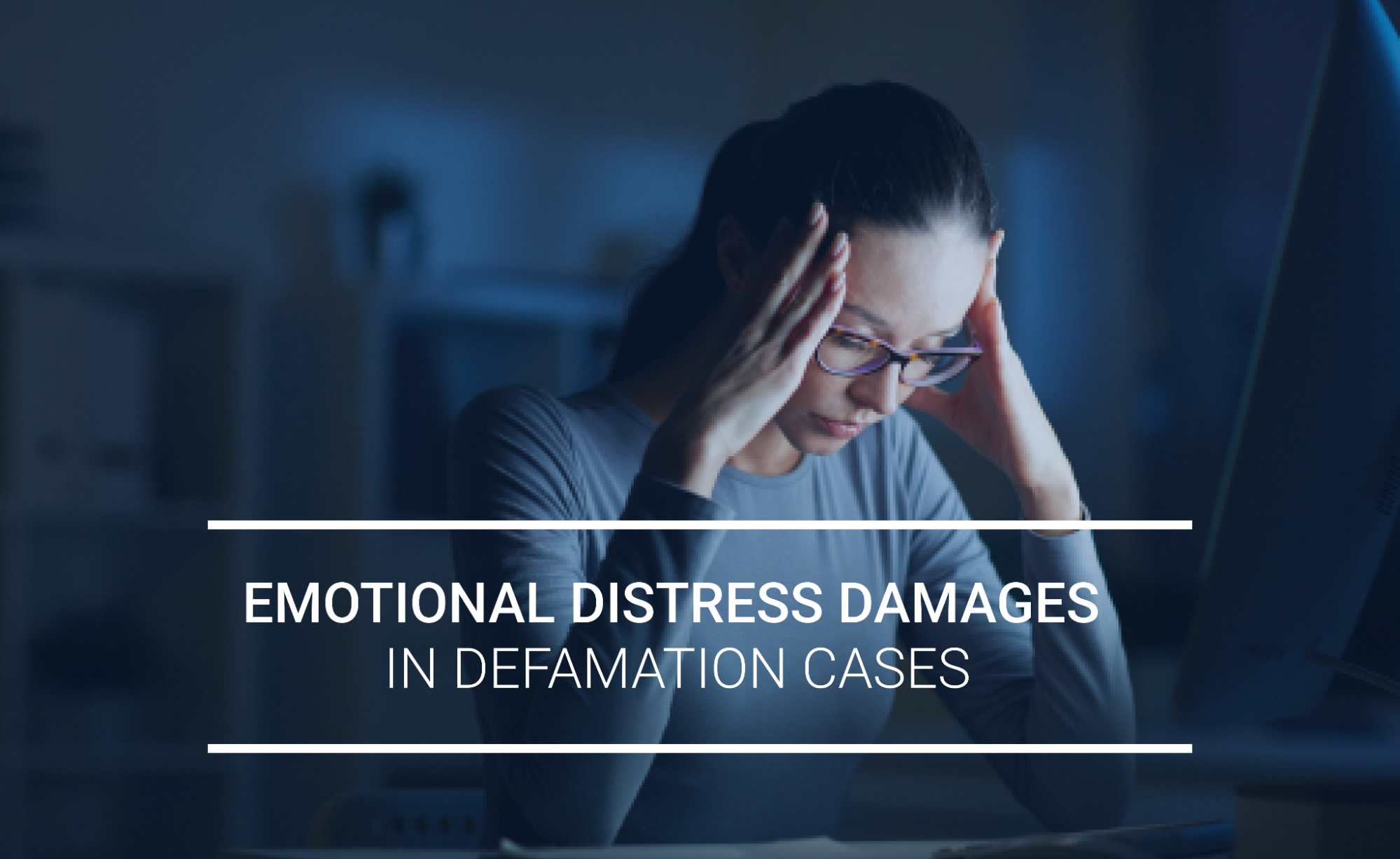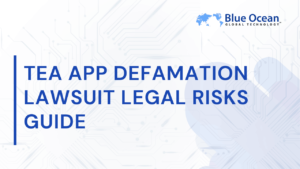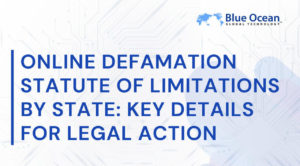Emotional distress refers to the psychological suffering someone experiences due to another party’s negligence, intentional harm, or defamation. Emotional distress can stem from various torts especially in the age of online defamation where false statements on social platforms rapidly damage mental wellbeing, These damages can be pursued in court as part of non-economic compensation even without physical injury.
Whether you’re dealing with online harassment, false accusations, or workplace discrimination, this guide will explain how to prove emotional distress, what types of claims exist, and what real legal cases reveal about potential payouts.
What Are Emotional Distress Damages?
Emotional distress damages are financial compensation awarded to individuals who’ve suffered mental or psychological harm due to someone else’s actions. These are often pursued under:
- Intentional Infliction of Emotional Distress (IIED)
- Negligent Infliction of Emotional Distress (NIED)
Examples of emotional injuries include:
- Anxiety or panic attacks
- Depression or PTSD
- Loss of sleep
- Public embarrassment or humiliation
To succeed in court, you must prove the defamation meets legal criteria. Learn how in our step-by-step guide on how to prove defamation.

What Are the Types of Emotional Distress Damages?
There are three types of emotional distress damages: general, special and punitive damages.
| Type | Definition | Example | Legal Context |
| General Damages | Compensation for pain, suffering, or trauma | Anxiety from false allegations | Subjective but valid |
| Special Damages | Tangible losses tied to the distress | Missed work, therapy bills | Requires documentation |
| Punitive Damages | Punishment for egregious conduct | Harassment campaign | Requires proof of malice |
Before courts decide how much compensation is appropriate, they categorize emotional distress damages into different legal types. Each damage type is assessed based on the source of emotional harm, the legal doctrine it falls under (like negligence or intent), and the evidence you present. Understanding these distinctions helps you prepare stronger claims and ensures you’re pursuing every form of compensation available.
Victims of internet defamation often experience anxiety, loss of sleep, and reputational damage that goes far beyond financial metrics.
Can You Sue for Emotional Distress Without Physical Injury?
Yes, Courts in many U.S. states recognize claims for emotional distress without physical harm, especially if:
- There’s intentional misconduct or extreme negligence
- The emotional impact is severe and well-documented
- A professional diagnosis supports the claim
Case Example:
In Molien v. Kaiser Foundation Hospitals, the California Supreme Court ruled a plaintiff could claim emotional distress without physical harm, setting a landmark precedent.
For a full breakdown of how courts evaluate special, general, and punitive compensation, see our guide on defamation damages.
How to Prove Emotional Distress in Court?
To successfully claim emotional distress damages, plaintiffs must satisfy legal thresholds that demonstrate the origin, severity, and real-world impact of the psychological harm. This typically involves four key components:
1. Proving Defendant’s Misconduct
The defendant’s behavior must be intentional, reckless, or grossly negligent. In cases of online defamation, this often includes malicious falsehoods, digital smear campaigns, or persistent cyber harassment that exceeds everyday online discourse.
2. Establishing Causation
There must be a direct, provable link between the defendant’s actions and your emotional distress. Courts seek demonstrable cause-and-effect, which may require correlating specific events (e.g., a defamatory post) with the onset of symptoms such as panic attacks or therapy initiation.
3. Demonstrating the Severity of Harm
Severity is judged by:
- Duration of psychological suffering
- Medical or psychological diagnosis (e.g., PTSD, anxiety, depression)
- Functional impact on your work, relationships, or quality of life
4. Evidence That Strengthens Your Case
Supporting documentation is critical for credibility and valuation. Common forms of evidence include:
- Clinical reports from licensed therapists or psychiatrists
- Personal journals or logs tracking symptoms
- Testimony from family, friends, or coworkers
- Emails, voicemails, or messages showing verbal abuse
- Screenshots from defamatory posts or digital harassment
Consider using a Internet Defamation Expert Witness to quantify and contextualize reputational harm in digital environments. Their testimony is especially valuable in online defamation or cyberbullying cases, where standard medical proof must be supplemented with platform-specific visibility, virality, and reach metrics.
Real-World Cases and Verdicts
Keith-Smith v. Williams (2006, UK) — £10,000 Damages
In one of the earliest UK cases of internet-based defamation, Keith‑Smith v. Williams involved false statements, labeling the claimant a “Nazi” in a Yahoo discussion group. The court ruled in favor of Keith‑Smith, awarding £10,000 in damages for the reputational and emotional impact. This case is often cited for its landmark treatment of online defamation consequences
Obsidian Finance Group, LLC v. Cox (2014, USA) — $2.5 Million Judgment
Crystal Cox, a blogger, was ordered to pay $2.5 million in defamation damages to the bankruptcy trustee she falsely accused online. The U.S. Ninth Circuit affirmed the verdict, emphasizing that her posts contained defamatory assertions presented as factual. It remains a seminal case in the landscape of online defamation and emotional harm.
See our full breakdown of defamation cases caused by social media and their legal consequences.

What Are the Common Signs and Symptoms of Emotional Distress?
Emotional distress isn’t just “feeling upset” it’s a clinically recognized condition that can trigger a range of cognitive, emotional, and physiological symptoms, often tied to events like defamation, workplace harassment, or online attacks. These emotional distress symptoms can serve as qualitative evidence in legal cases, especially when supported by therapists, psychologists, or expert witness assessments.
Recognized symptoms include:
- Trouble concentrating or difficulty completing basic tasks
- Insomnia or disrupted sleep, often with recurring intrusive thoughts
- Chronic fatigue, even without physical illness
- Social withdrawal and avoidance of public or digital spaces
- Strained or broken personal relationships (marital stress, friendship breakdowns)
According to the Diagnostic and Statistical Manual of Mental Disorders (DSM-5), emotional distress symptoms like anxiety, sleep disturbance, and social dysfunction are diagnostic criteria for trauma-related and adjustment disorders.
When these signs are backed by clinical evaluation, medical records, or mental health documentation, they can strengthen your claim in both personal injury and defamation-related lawsuits.
How Are Emotional Distress Damages Calculated?
There’s no single formula for calculating emotional distress damages; instead, courts use a multi-factor analysis to determine fair compensation. This involves both qualitative and quantitative metrics, often supported by expert witness testimony and mental health evaluations.
Key factors considered in court:
- Duration and intensity of symptoms: Chronic emotional harm such as persistent anxiety, panic attacks, or PTSD can significantly increase the award.
- Impact on daily life and relationships: If distress affects work productivity, social functioning, or personal relationships, damages are typically higher.
- Costs of treatment and ongoing care: Documented expenses such as therapy, medication, or psychiatric care are considered special damages.
- Nature and severity of the defendant’s conduct: Malicious, intentional, or repeated actions (especially on public platforms) may justify punitive damages.
- Expert evaluations and testimony: Judges often rely on licensed therapists, psychologists, or internet defamation expert witnesses to explain the psychological harm and its future implications.
Example: In Doe v. Online Publisher, the plaintiff received $125,000 in damages after proving prolonged panic attacks and therapy needs triggered by a defamatory online post

FAQs About Emotional Distress Claims
Can I claim emotional distress from online harassment or defamation?
Yes, Individuals can claim emotional distress when targeted by online harassment, false accusations, or defamatory content. Courts increasingly recognize the psychological harm caused by internet-based attacks, including those on platforms like Facebook, YouTube, or Reddit. For context, learn more about online defamation and its legal remedies.
Do I need a therapist or mental health professional to testify?
While not legally required, having a licensed therapist, counselor, or psychologist provide testimony significantly strengthens your claim. Courts tend to prioritize documented diagnoses, treatment plans, or assessments of emotional injury over subjective statements. Learn how internet defamation expert witnesses contribute to evidence in complex cases.
Can emotional distress be included in a defamation lawsuit?
Yes, emotional suffering is a core element of defamation-related harm. Plaintiffs often receive compensation for anxiety, depression, or reputational damage resulting from false statements. Both general and special damages may apply. Review the breakdown in how defamation damages are calculated, and see the legal prerequisites in how to prove defamation.
Online Defamation Cases Can Ruin a Company’s Reputation and Future.
Let Us Help You Sail Through the Crisis Knowing You Are in Good Hands.












